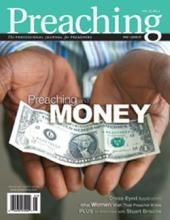Dave Ramsey’s Generation Change
This 4-session DVD study package is aimed squarely at teens. Ramsey is famous for going ballistic about people who max out their credit cards. Unfortunately, millions of those people are students. This series explores biblical values, contrasts biblical teaching with our emphasis on stuff and gives practical tips on saving and budgeting. Ramsey (who is interviewed in this issue) says this series “teaches teens that God values and treasures them, the ‘stuff’ around them does not define them, the dangers of credit, how to save and budget for what they want, and how to give and change the world around them.” Using this resource with your kids could help create a new generation of financially healthy and happy adults.
(Sample available at 1(888) 22-PEACE, http://www.daveramsey.com/)
The Basics of Saving and Investing: Investor Education 2020
Humberto Cruz, who was also interviewed in this issue, recommends this resource, which was developed by the Investor Protection Trust for high school teachers. (http://www.investorprotection.org/basics/)
Good Sense Budget Course
Dick Towner and John Tofilon
(Zondervan)
This extensive curriculum package from Willow Creek Resources contains leader and participant guides, a PowerPoint disk, and enough DVD/video segments for six sessions or a weekend retreat. While not aimed at teens, many of the lessons here will translate to younger spenders. (http://www.goodsenseministry.com/)
Gimme the $tuff! Seeking the Heart of Christ in a Culture of Materialism
Barrh Shafer (InWord Resources)
This four-session resource from the YouthWorker Journal Bible columnist helps students learn what the Bible has to say about money—a subject given nearly as much coverage as love! Students will be challenged by God’s instructions regarding the pursuit of wealth and possessions through this inductive Bible study, which comes with reproducible student pages and access to a product-specific Web page containing tons of additional resources and follow-up ideas. (www.inword.org/catalog, 1(888) 422-3060)
Affluenza
A PBS Web site describes this new disease as follows: “The bloated, sluggish, and unfulfilled feeling that results from efforts to keep up with the Joneses.” In addition to the original PBS TV program that exposed the dangers of affluenza, there are resources for teachers and students that can help you teach kids about the overwork, waste and indebtedness that can come from focusing on acquiring more stuff. (www.pbs.org/kcts/affluenza/)
Preaching Magazine
The May/June 2007 issue of our sister publication was devoted to “Preaching and Money.” The issue contains articles, sermon outlines and other resources for shepherds who want to instruct their flocks about mammon. (subscriptions@salempublishing.com, 1(800) 527-5226)
The Justice Mission
This curriculum package from Jim Hancock and International Justice Mission focuses on God’s heart for the poor and oppressed of the world. Sometimes focusing on this topic helps self-centered, materialistic teens turn outward. (https://shop.youthspecialties.com/store/product.php?productid=325&cat=337&page=1)
Craig Blomberg
If you liked the New Testament scholar’s article on the theology of money in this issue, you might like his books on the subject: Neither Poverty nor Riches: A Biblical Theology of Possessions (InterVarsity, 2001) and Heart, Soul and Money ( College Press, 2000), a Bible study workbook.
Helping Teen Tycoons
New York Times writer Penelope Green wrote a fascinating article about kids who have the Midas touch and what the adults in their lives can do to help guide them. The article lists numerous resources. (http://www.nytimes.com/2007/01/25/garden/25kids.html)
The Naked Truth About Your Money
Targeted to members of Generations X and Y (also known as “Generation Broke”), this book by Bill DeShurko, host of radio’s “Money Sense” covers budgeting, saving, credit cards and taxes. (http://www.401advisor.com/)
In Debt We Trust is a 2006 documentary on the credit industry from journalist Danny Schechter (whose previous project was WMD: Weapons of Mass Deception). The movie is wonky at times and focuses more on Congress and the credit card industry than it does individual decisions, but some students will find it interesting.
Financial Education Month
It happens every April, just when adults are gnashing their teeth over the income tax returns. Also known as Financial Literary Month, the effort has led to the creation of numerous Web sites and many materials designed to help people become smarter about what they spend and how they can save.




